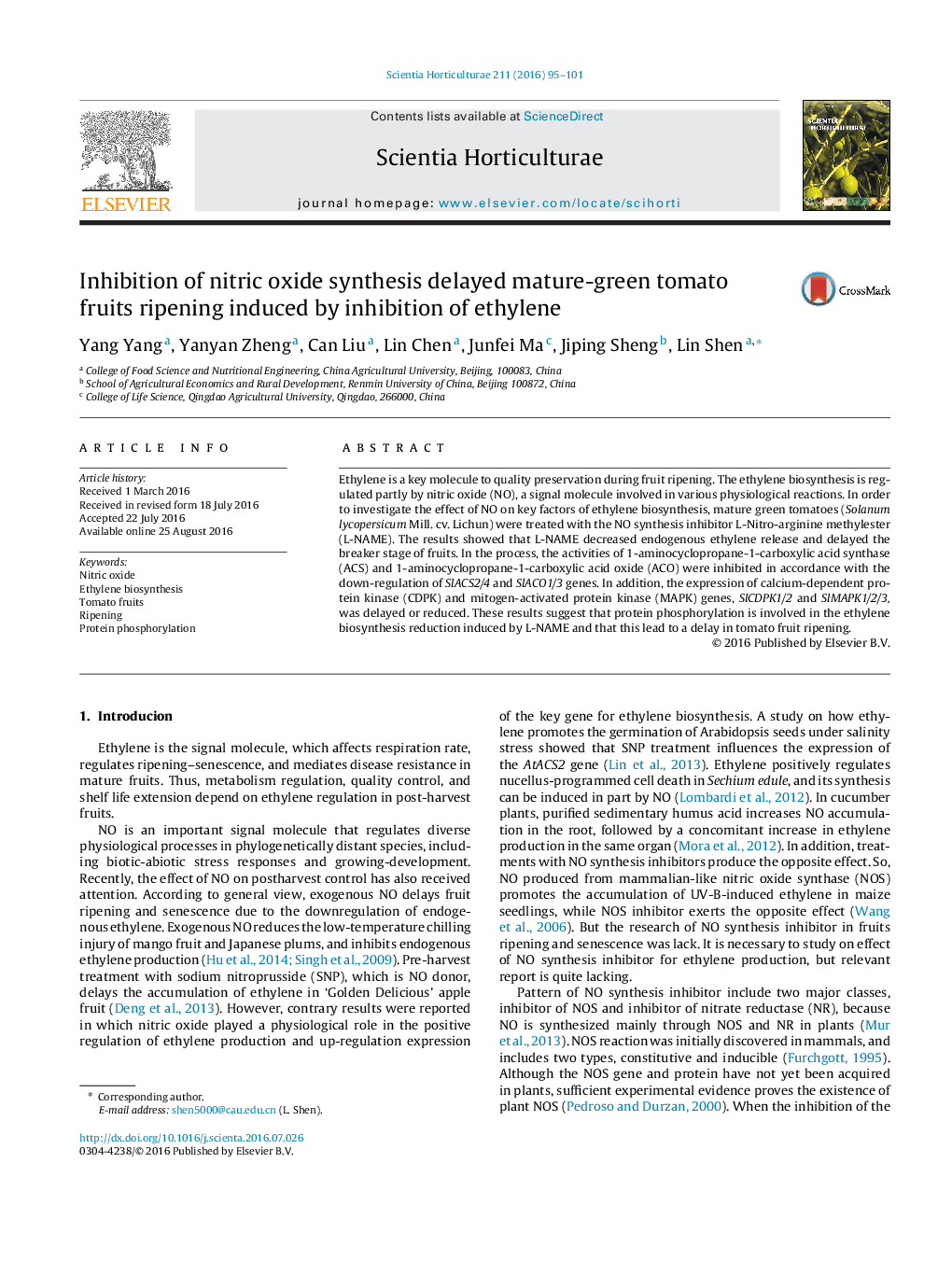| Article ID | Journal | Published Year | Pages | File Type |
|---|---|---|---|---|
| 6406074 | Scientia Horticulturae | 2016 | 7 Pages |
â¢First: The inhibition of nitric oxide synthesis delayed the ripening of tomato fruits.â¢Second: The inhibition of nitric oxide synthesis negatively regulated ethylene production in tomato fruits trough the down-regulation of ethylene biosynthesis key gene.â¢Third: Alteration of protein phosphorylation was involved in ethylene production and fruit ripening.â¢Fourth: Remove.
Ethylene is a key molecule to quality preservation during fruit ripening. The ethylene biosynthesis is regulated partly by nitric oxide (NO), a signal molecule involved in various physiological reactions. In order to investigate the effect of NO on key factors of ethylene biosynthesis, mature green tomatoes (Solanum lycopersicum Mill. cv. Lichun) were treated with the NO synthesis inhibitor L-Nitro-arginine methylester (L-NAME). The results showed that L-NAME decreased endogenous ethylene release and delayed the breaker stage of fruits. In the process, the activities of 1-aminocyclopropane-1-carboxylic acid synthase (ACS) and 1-aminocyclopropane-1-carboxylic acid oxide (ACO) were inhibited in accordance with the down-regulation of SlACS2/4 and SlACO1/3 genes. In addition, the expression of calcium-dependent protein kinase (CDPK) and mitogen-activated protein kinase (MAPK) genes, SlCDPK1/2 and SlMAPK1/2/3, was delayed or reduced. These results suggest that protein phosphorylation is involved in the ethylene biosynthesis reduction induced by L-NAME and that this lead to a delay in tomato fruit ripening.
Graphical abstractDownload high-res image (157KB)Download full-size image
